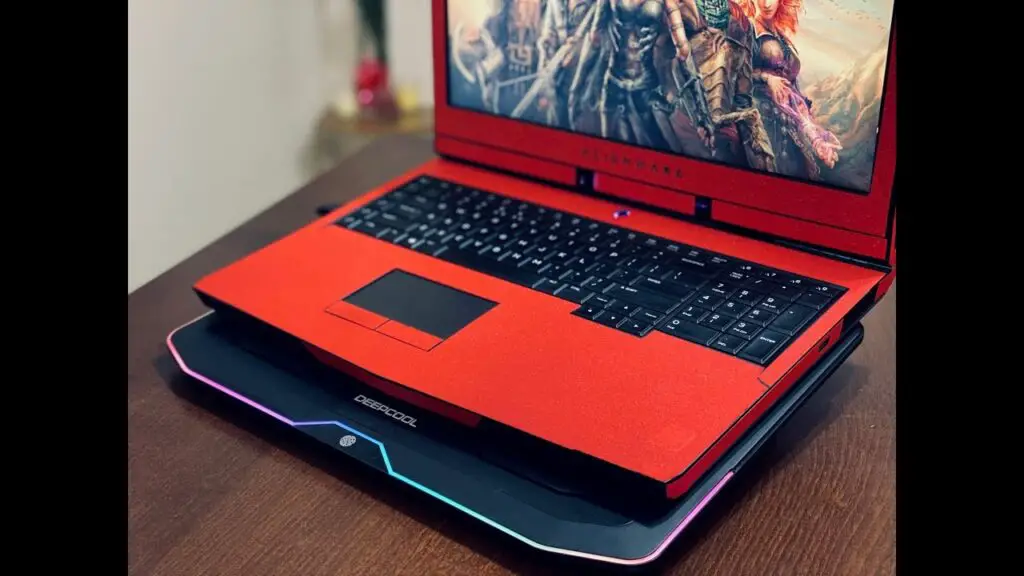Overclocking is a big thing in the gaming community. Because with overclocking your laptop or PC is able to achieve some serious performance which is not possible on a normal day.
Overclocking allows you to get better and faster gaming performance.
In this post, we will be focusing on overclocking your laptop’s GPU. Doing so can greatly boost FPS or gaming performance if you know what you doing.
Should I overclock my laptop GPU? Here are the advantages and disadvantages of overclocking laptop GPU.
What Is GPU Overclocking?
GPU overclocking is basically increasing the core clock or “speed” of the GPU.
Every GPU has the normal operating speed it runs. The speeds are normally indicated by megahertz (MHz) or gigahertz (GHz).
For example, the Nvidia GeForce GTX 1080 has a core clock of 1607 MHz. Overclocking it will make it run at a higher core clock.
Overclocking comes with some risks though like high temperatures, crashes if power demands are not met and the reduction of system hardware lifespan. If it is done very often.
GPU Overclocking Terminology
Here are a few terminologies used in overclocking.
GPU Core Clock
Core clock is the speed of the cores on your Graphics processor. The core clock is measured in megahertz (MHz) or gigahertz (GHz). To increase the core clock speed you have to overclock your GPU.
GPU Memory Clock
The memory clock is the frequency of the VRAM on the GPU. The VRAM is the ram utilized by the GPU.
VRAM serves as the memory for holding assets that the GPU needs to render.
The higher the frequency of the VRAM the faster the GPU is able to render assets. The memory clock of the GTX 1060 is 1506 MHz and the VRAM is 6 GB.
Why Should I Overclock My Laptop GPU?
OK, so you really want to overclock your laptop GPU? Here are some advantages you should know before overclocking
Better Performance and Faster Response Times
Overclocking your GPU will give you a boost in gaming performance. Framerates per second are increased and gameplay is very smooth.
Graphics-related software will also spend less time rendering projects you are working on.
This is the one and the only major reason why you should overclock your laptop GPU: better performance and faster response times leading to smooth gameplay.
Why I Shouldn’t Overclock My Laptop GPU?
Like with most things, there will always be a disadvantage. Here is why you shouldn’t overclock your laptop GPU.
Heat
Overclocking your GPU will increase the amount of heat it produces when underuse.
If you do not replace your cooling system or your laptop doesn’t have a really good cooling system then heat will be one of the major problems you will have to deal with.
Excessive heat or constant high temperatures will destroy your GPU over the long run. In some cases, cooling pads are not even enough to reduce the heat being produced.

High temperatures from the GPU can also cause thermal throttling or even cause your laptop to shut down or crash. Normal temperatures for graphics cards are 70-80 degrees Celsius.
Anything higher and red lights should start going off in your head. Increased voltage can shorten the lifespan of GPU and other components
Because you overclock the GPU the amount of power consumption will increase thanks to the increase in voltage.
Increased power consumption is what allows the GPU to run at faster frequencies. Increased volts gradually stress the system and generate a lot of heat.
Over time this shortens the lifespan of the GPU and other components because of the stresses and heat.
Is It Safe To Overclock Laptop GPU?
Yes, provided you know what you are doing. There are so many software and guides that teach you how to overclock your laptop’s GPU and CPU.
What you should be worried about are the high temperatures after the overclocking has been done.
Is Overclocking My Laptop GPU Worth It?
Most of the time, it is not worth it unless you are a game enthusiast or a competitive gamer.
Also, laptops are not meant to be overclocked because of their small chassis and the fact that they are not able to do away with heat very well compared to desktops.
Desktops cooling systems are much much better than laptop cooling systems.
But, if you still want to overclock just make sure you check if your GPU can be overclocked and you have the right cooling system for the heat that is going to be produced.
Also, applying thermal paste can help control and reduce temperatures.
There are several ways of GPU overclocking can be done. The most common way of overclocking a GPU is by software.
MSI Afterburner is an example of such overclocking software. Gaming laptops, like the Acer Predator Helios 300 have an overclocking software called PredatorSense.
Always make sure you read expert guides on how to overclock your laptop GPU before you actually do it.
Best Overclocking Software For Laptops
Here is the best overclocking software for laptops below:
Should You Overclock Your Laptop GPU?
Yes, if you are looking for better and faster performance.
However, keep in mind that you should a good cooling system and thermal paste ready to prevent your laptop from overheating.
